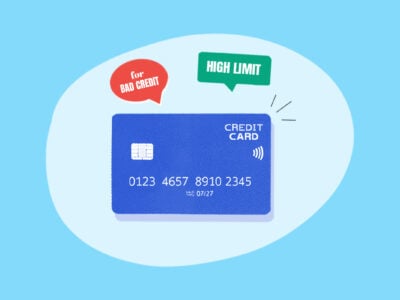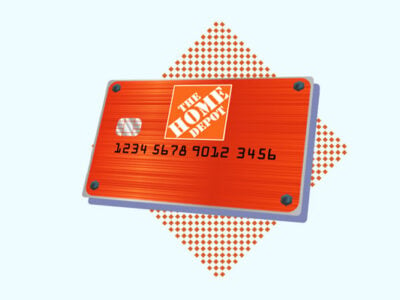Table of Contents
What’s the difference between personal credit cards and business credit cards?
Personal credit cards are designed for individual consumers to use for their personal spending. Business credit cards, on the other hand, are meant for business expenses and commercial spending.
Both types of credit cards work essentially the same way: a card issuer, such as a bank or a credit union, extends you (or your business) a line of credit to use. You pay off your balance on a monthly basis, and you’re charged interest on whatever you don’t pay off.
Depending on the card, you can also earn rewards and cash back on purchases with both business and personal credit cards.
While both cards function similarly in how they work and how they establish credit history, there are a few differences between business credit cards and personal credit cards:
Differences between business and personal credit cards
| Business credit cards | Personal credit cards | |
|---|---|---|
| Use | Business expenses | Personal expenses |
| Credit reporting | Reported to Experian, Equifax, Dun & Bradstreet | Reported to Equifax, Experian, TransUnion |
| Credit score | Various scales; often range from 1 to 100 | Scales range from 350 to 800 |
| Consumer protections | Limited | Full |
| Access to credit report | Need to pay to see your report through the major business credit bureaus | Free, at least once per year (now once a week up to the end of 2022 due to COVID-19) |
| Credit limits | Higher | Lower |
| Identification number used to apply | Employer Identification Number (EIN) or Social Security number (SSN) | SSN or Individual Taxpayer Identification Number (ITIN) |
Is business credit different from personal credit?
Yes, business credit is different from personal credit. If you own a business, it has a credit score, just like you do. Your business and personal credit scores will be mostly separate (although it’s possible for your business credit use to affect your personal credit score, which we’ll cover below).
Here’s the difference between the two types of credit scores:
- Business credit score: Your business credit score reflects your business’s financial history. It’s tied to your company’s Employer Identification Number (EIN) or Tax ID Number, and it indicates how creditworthy your business is.
- Personal credit score: This reflects your financial history as an individual consumer. It’s connected to your Social Security number and is created from the information on their personal credit report, which doesn’t include business expenses.
Lenders use both types of credit scores for the same purpose—assessing a business or person’s eligibility for new lines of credit.
Can I get a business credit card without a personal credit check?
Yes, it’s sometimes possible to get a business credit card without a personal credit check, although if you own a small business, it’s far less likely.
As a small business owner, any line of business credit that you qualify for will probably require a “personal guarantee,” which means that you’ll be personally liable for repaying any debt if your business fails. If your card issuer requires a personal guarantee, they’ll check your personal credit before approving you for the business credit card.
On the other hand, if you own a large company with a lot of revenue, you might be eligible for a corporate card with no personal guarantee. If you are, your card issuer probably won’t check your personal credit score—they’ll only be interested in your company’s credit and financial history.
How do business credit cards affect your personal credit?
While business credit cards help keep your personal finances separate from your business ones, using your business credit card can sometimes affect your personal credit score.
This isn’t always the case—it depends on whether or not your business card issuer reports to the consumer credit bureaus as well as the commercial credit reporting agencies.
Issuers have different policies, and may variously report:
- All business credit activity
- No business credit activity
- Only negative information, i.e., seriously delinquent debts that go into default
The table below shows how different credit card issuers report business credit activity to the consumer credit bureaus (causing it to affect your personal credit score).
Business credit card reporting policies
| Card Issuer | Reported Activity |
|---|---|
| American Express | Defaulted debts |
| Bank of America | Defaulted debts |
| BBVA | No activity |
| Capital One | All activity |
| Chase | Defaulted debts |
| Discover | All activity |
| Citi | Defaulted debts |
Note that the above applies to small businesses. As mentioned, if you own a large, high-revenue company, you might qualify for business credit that doesn’t affect your personal credit at all.
Is it illegal to use a personal credit card for business?
No, it’s not illegal to use a personal credit card for business expenses. However, we don’t recommend doing so for the following reasons:
- It will complicate your taxes by making it harder to track your business expenses.
- You could end up paying more in taxes, as personal purchases are not tax deductible.
- Personal credit cards don’t build business credit, so it’ll be harder to qualify if your business needs loans or credit in the future.
- Your credit score could drop because you’ll be using more of your available credit (i.e., your debt-to-credit ratio will increase).
- You’ll complicate your legal liability and could lose your personal assets if someone sues your business.
The bottom line is that you can use your personal credit card for business expenses, but you’re missing out on a lot of benefits and could be assuming unnecessary risk.
What if I’m already using my personal credit card for business expenses?
If you’re a sole proprietor (or self-employed with no employees) and you don’t have an EIN, you may already be using your personal credit card for your business. As noted above, we don’t recommend that, but it’s your choice; there’s no law mandating that you have to use a business credit card for business expenses.
If you don’t plan on getting a business credit card, consider getting a separate personal credit card that you only use for company expenses. This way, you can still keep your personal and business finances separate.
Should I get a business or personal credit card?
While business credit cards and personal credit cards are designed for different purposes, if you’re an entrepreneur of any sort (freelancer, self-employed with a side hustle, running a small business, etc), both cards should have a place in your wallet. For example, a freelancer credit card can help even a part-time contractor fund business expenses and separate financials.
How to know which type of card to get
You should get a business credit card if you want to:
- Establish and build business credit
- Earn business-specific bonuses and rewards on company purchases
- Have access to higher credit limits
You should get a personal credit card if you want to:
- Build or improve your credit score
- Earn rewards on consumer purchases
- Access a line of credit with consumer protection
Applying for and maintaining both types of cards will help you organize your finances better, allowing you to make clearer budgeting decisions and stay on top of your business and personal expenses.






